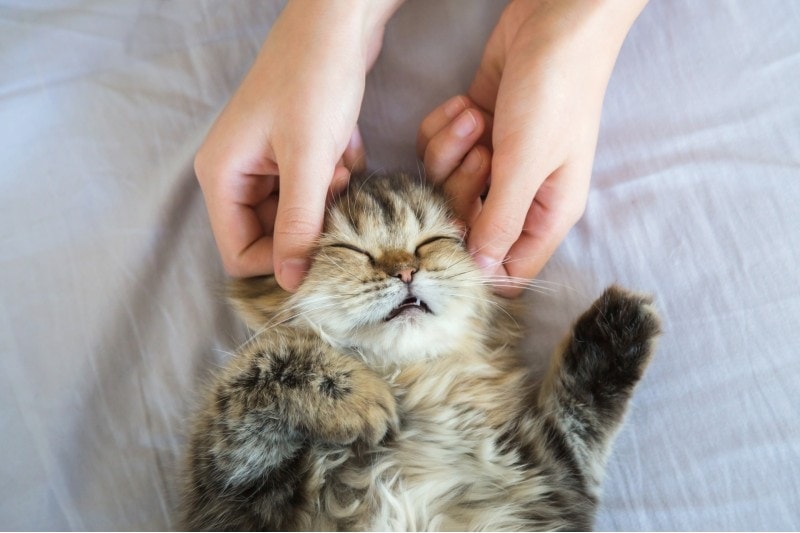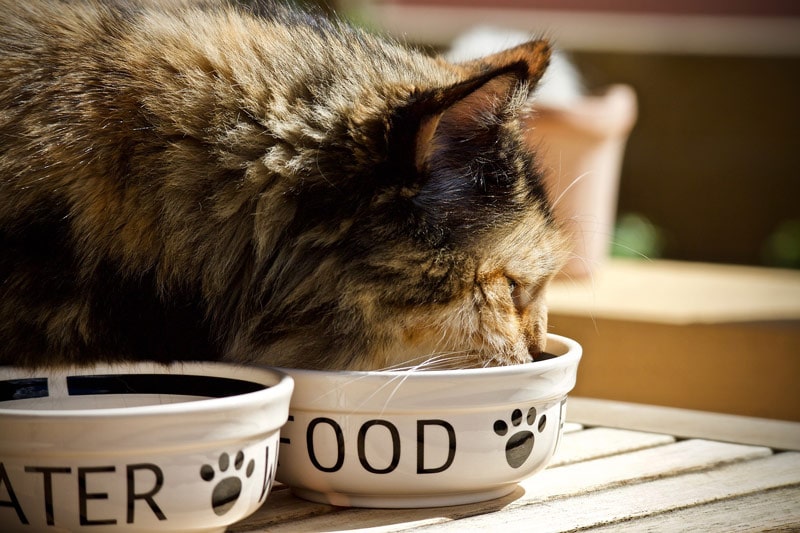11 Common Causes of Sudden Weight Loss in Cats
Updated on
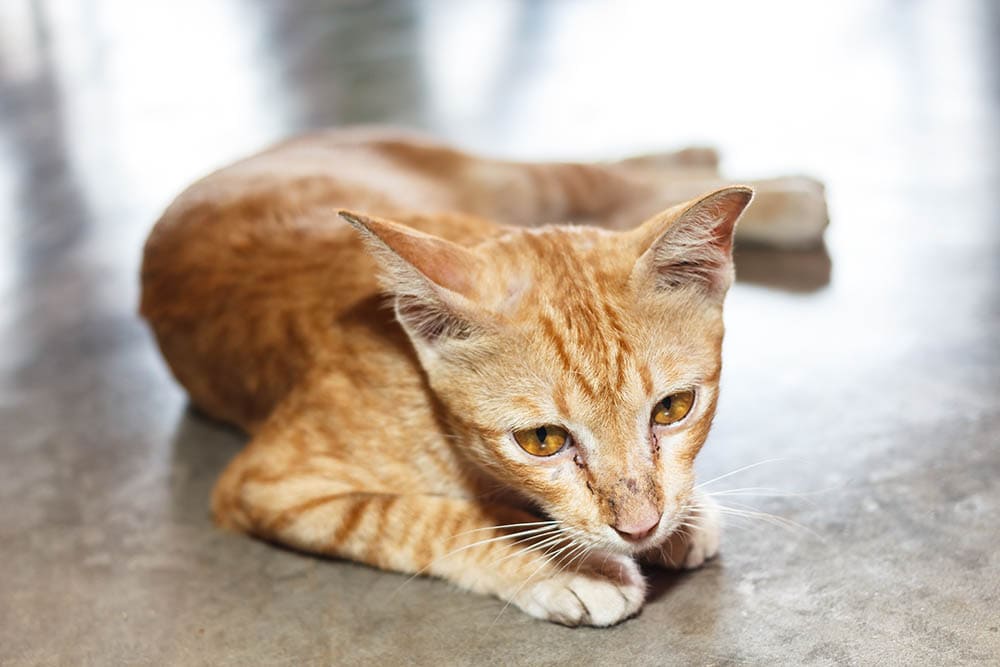
If you’re a cat owner, finding that your sweet kitty is suddenly losing weight can be disconcerting. When it happens without warning, it’s extra frustrating and confusing. There are many reasons that cats experience sudden weight loss. In this article, we look at 11 common causes of sudden weight loss in cats to help you determine the problem.
11 Common Causes of Sudden Weight Loss in Cats
1. Hyperthyroidism
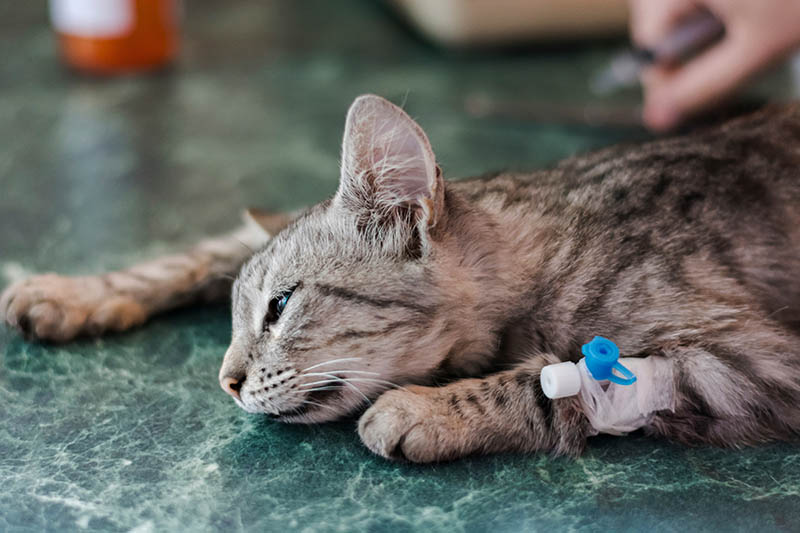
Hyperthyroidism is a condition that can cause your cat to lose weight. The most common cause of hyperthyroidism in cats is a benign tumor on their thyroid gland. This condition can be controlled with diet and medication, but it will not be cured unless you remove the tumor surgically or look into Radioactive Iodine (I-131) therapy treatment.
- Weight loss
- Increased appetite and thirst
2. Liver Disease
Liver disease is the most common cause of sudden weight loss in cats. It can be caused by several factors, including toxins, viruses, and bacterial and parasitic infections. If your cat has liver disease, you may notice that they are jaundiced (turning yellow) or vomiting blood.
Liver disease can be fatal, so it’s important to seek medical attention immediately if you notice any of these symptoms in your cat. Depending on the underlying cause, early treatment may have a better prognosis.
3. Diabetes
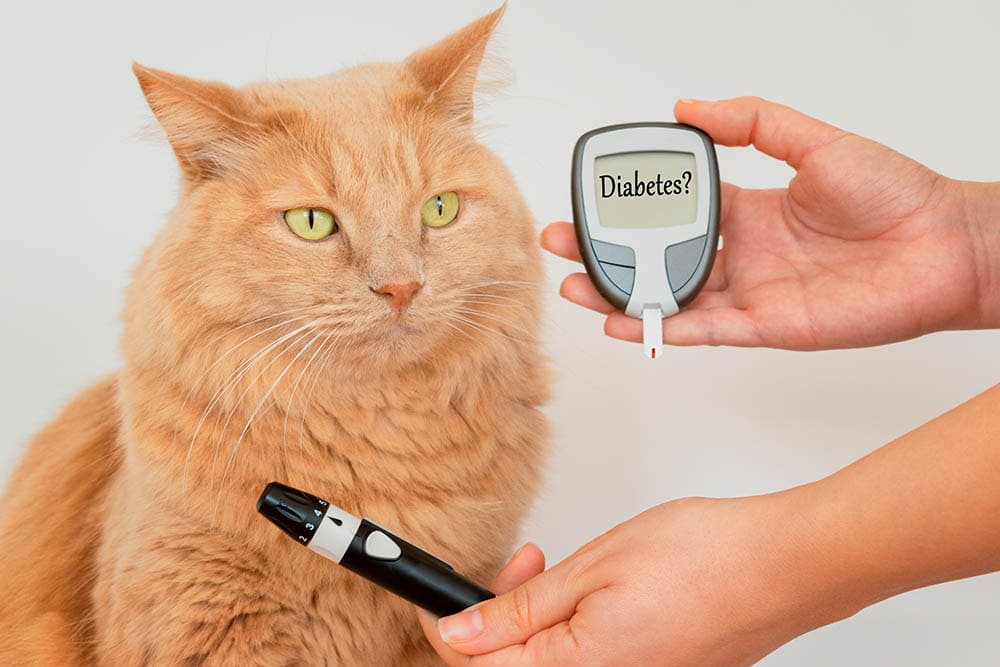
Diabetes is a disease where the body cannot properly regulate blood sugar levels. It can be caused by several factors, including genetics and obesity. In the first case, the pancreas does not produce enough insulin (which is called type 1 diabetes). In the second case, your cat’s body does not respond to the insulin that it produces (known as type 2 diabetes). Excess sugar that cannot enter cells builds up in their bloodstream instead. If left untreated, diabetes can cause severe health problems, like kidney failure and blindness. When it is not using glucose as an energy source, the body turns to other sources, breaking down its own fat and turning muscles into protein. This breakdown results in sudden weight loss, despite an increased appetite.
Diabetes can also be caused by diet: Cats on restricted diets or that eat only dry food are at risk of developing this disease because dry foods are high in carbohydrates, causing insulin resistance and raising blood glucose levels over time.
4. Kidney Disease
Kidney disease is a common cause of sudden weight loss in cats. It often leads to dehydration, which can cause your cat to be thirsty and drink more water than normal. Other symptoms of kidney disease include vomiting, diarrhea, or lack of appetite. These are all things that might cause your cat to suddenly lose weight without any change in eating habits or exercise level.
If you suspect that your cat has kidney disease, it’s important to have them checked out by a veterinarian right away so they can start treatment options as soon as possible. While kidney disease does not have a cure, its development can be slowed down with special diets and medical treatments such as phosphate binders. The sooner you can diagnose this condition and begin management options, the better off your furry friend will be!
5. Cancer
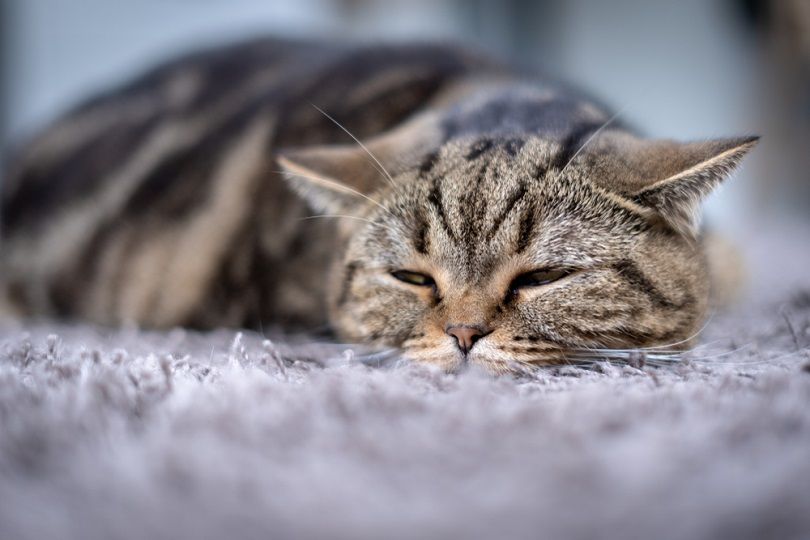
If your cat is losing weight rapidly but doesn’t appear ill, it’s important to have them checked by a veterinarian immediately. While there are many possible causes of sudden weight loss in cats, cancer is a common culprit.
- Loss of appetite (anorexia)
- Lethargy and loss of energy
- Vomiting or diarrhea (sometimes bloody)
- Bleeding from the rectum or mouth (hematemesis)
- Skin changes, like discoloration or lesions
6. Anxiety or Stress
Stress or anxiety can also cause your cat to lose weight. Stress can be caused by any number of things, including a move, the birth of a new baby, or the addition of a new pet to the household.
- They may begin eating less food and drinking less water.
- They may groom excessively.
- They may hide.
- They may become restless.
7. Feline Infectious Peritonitis
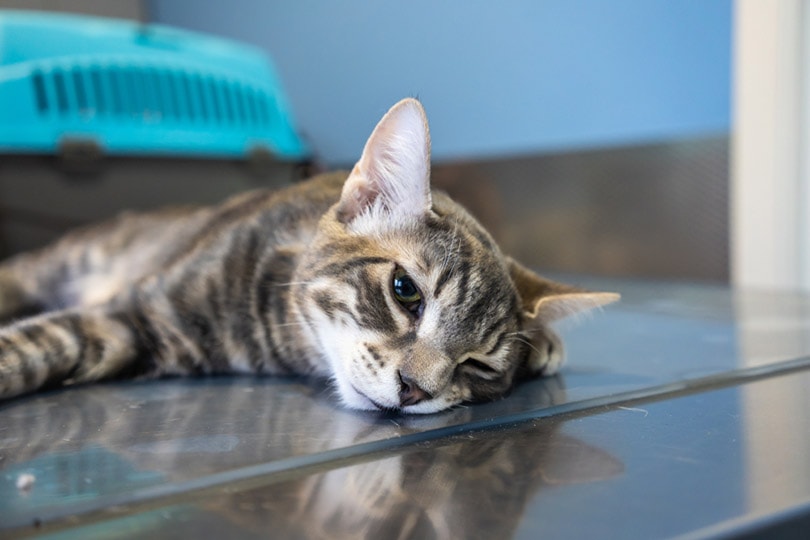
Feline infectious peritonitis (FIP) is a viral disease that can affect cats of all ages. It’s not contagious to humans but can be quite serious for your cat.
FIP is caused by a coronavirus, which is an uncommon type of virus found in the intestinal tract and respiratory system of cats. Symptoms include fever, lethargy, loss of appetite, and weight loss.
8. Gastrointestinal Issues
Cats can be finicky eaters. If a cat suddenly stops eating the food that they normally eat, it could indicate an underlying health problem. Cats with gastrointestinal issues may stop eating because they’re in pain or are nauseated.
Diarrhea and vomiting are common symptoms of gastrointestinal issues, so if your normally healthy cat suddenly develops diarrhea or throws up after eating, don’t ignore it! These symptoms can indicate anything from parasites and allergies to viruses or even more serious problems, such as kidney disease or cancer. If your veterinarian doesn’t find anything wrong during the standard course of testing for these conditions, it may be time for further investigation into whether there is another underlying cause at play (e.g., pancreatitis).
9. Intestinal Parasites
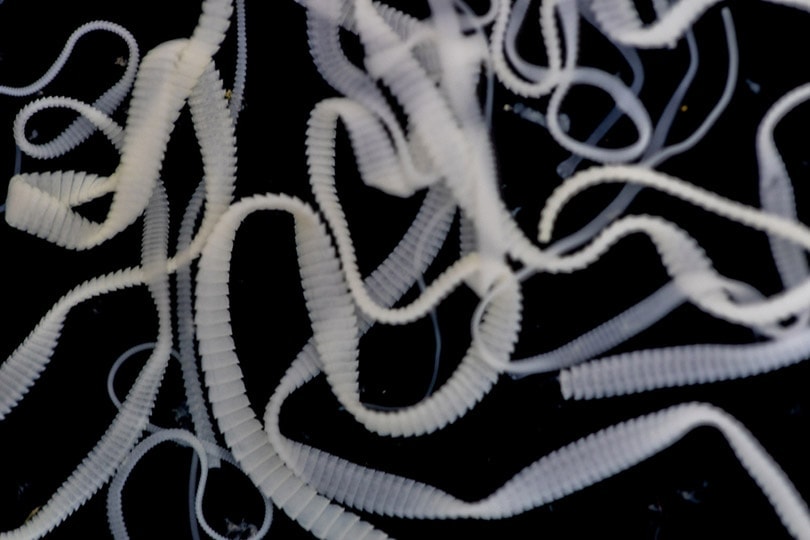
- Roundworms
- Hookworms
- Tapeworms
- Protozoans
Luckily, all these parasites can be treated with a dose of dewormer from your vet.
10. Organ Failure
Organ failure, or the body’s inability to perform its normal functions, can lead to sudden weight loss. The organs may be damaged or have stopped working altogether. Organ failure may also be part of an underlying disease that’s causing your cat to lose weight.
If your cat is losing weight rapidly, you should book an appointment with your vet as soon as possible to diagnose its cause.
11. Periodontal Disease
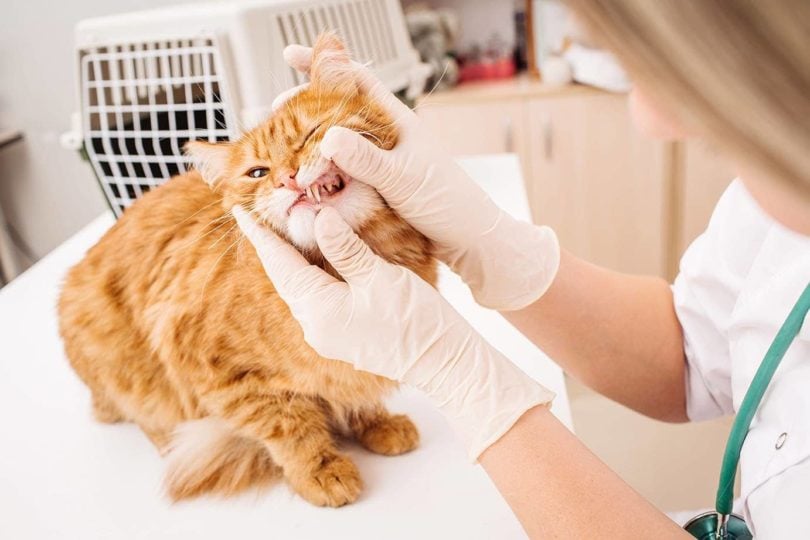
If your cat is experiencing pain or tooth infections, they may eat less or even stop eating. You should take them to the vet for a dental cleaning and any needed procedures such as extractions or root canals. Regularly brushing your cat’s teeth can go a long way toward preventing dental issues.
Treatment and Care for Underweight Cats
If your cat is underweight, it’s important to have them examined by a veterinarian. Depending on the underlying cause, underweight cats may need to be hospitalized while they are treated and monitored. If the weight loss was sudden, you should also watch for any other changes in behavior, like not eating or drinking enough water or sleeping more than usual (more than 16 hours per day). These signs can be useful information for the veterinarian investigating the case.
Cats that have lost a large amount of weight may need tube feeding or intravenous fluids to support their nutrition levels.
Conclusion
Hopefully, this article has helped you understand some of the many causes of sudden weight loss in cats. It’s important to remember that if your cat experiences sudden changes in appetite or weight, you should take them to the vet as soon as possible so they can run tests and determine what is going on. With early treatment, your cat has a better chance of returning to a healthy weight and recovering their overall health.
Featured Image Credit: 21MARCH, Shutterstock


